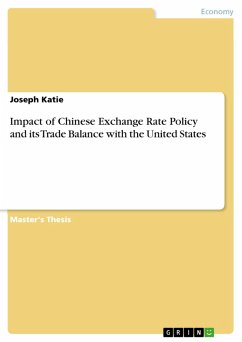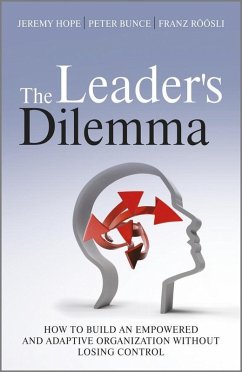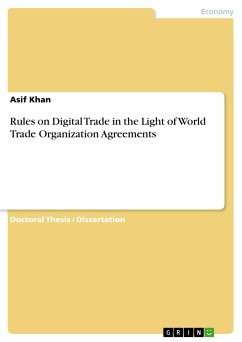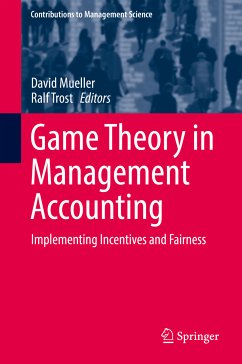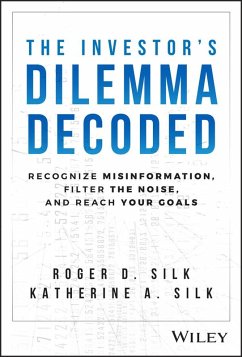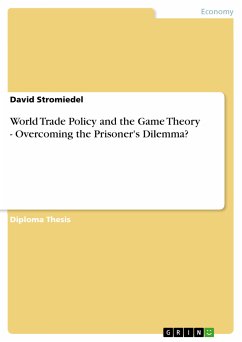
World Trade Policy and the Game Theory - Overcoming the Prisoner's Dilemma? (eBook, PDF)

PAYBACK Punkte
0 °P sammeln!
Diploma Thesis from the year 2004 in the subject Business economics - Business Management, Corporate Governance, grade: 1,3, University of Applied Sciences Nuremberg, language: English, abstract: Over the past few years, and especially between 2001 and 2004, world trade has experienced a renaissance of protectionist tendencies. Despite the promising compromises and the negotiation success of the World Trade Organisation (WTO) round in Geneva in July 2004 and other previous rounds, bilateral relationships between countries often seem to undermine the idea of a world of free trade. Protectionism...
Diploma Thesis from the year 2004 in the subject Business economics - Business Management, Corporate Governance, grade: 1,3, University of Applied Sciences Nuremberg, language: English, abstract: Over the past few years, and especially between 2001 and 2004, world trade has experienced a renaissance of protectionist tendencies. Despite the promising compromises and the negotiation success of the World Trade Organisation (WTO) round in Geneva in July 2004 and other previous rounds, bilateral relationships between countries often seem to undermine the idea of a world of free trade. Protectionism, though, is no new phenomenon at all: Its roots can be traced back till the 16 th century, when the so called mercantilists tried to achieve a positive balance of payments by imposing import tariffs and quotas 2 . Since then, protectionism has not only shown to be a popular measure in developing countries to shelter own infant industries, but repeatedly was utilized by major industrialized countries to stay ahead of competing nations. Today, protectionist measures can especially be observed in economic downturns, when countries reach for import restrictions in order to cushion the negative effects of recessions. Economic theories show that every country, irrespective of its development status, benefits from free trade. But then, why does decision making in world trade still rely on the over 500 years old mercantilist idea, and why does an always recurring protectionism hinder the optimization of the wealth of nations? [...]
Dieser Download kann aus rechtlichen Gründen nur mit Rechnungsadresse in A, B, BG, CY, CZ, D, DK, EW, E, FIN, F, GR, HR, H, IRL, I, LT, L, LR, M, NL, PL, P, R, S, SLO, SK ausgeliefert werden.




